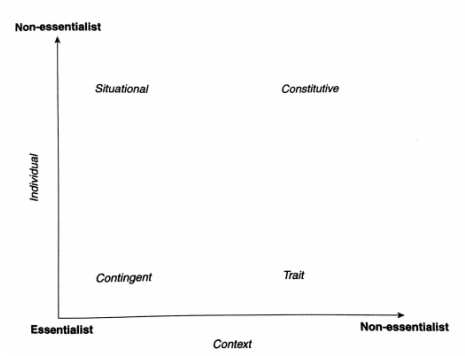I see a lot, and I mean a lot of articles on LinkedIn and suchlike that discuss leadership. Of these I estimate about half have titles like ‘8 key things every leader must do’, ‘Top 5 tips for outstanding leadership’, ‘You can’t live without these 3 insights from CEOs’ … I’m sure you’ve seen them too.
What I worry about, and I genuinely mean I worry about this, is that the authors seem to believe they have The Solution to the extraordinarily complex topic of leadership – a silver bullet which, if adopted by others, would see amazing leaders springing up left and right overnight.
Now, I understand that articles with sensationalist titles promising quick fixes are a favourite for attracting online readers with little time or appetite for detail. But when I read the typical comments submitted below these articles I can't help think that some people actually believe in these silver bullets. For example:
So, if these types of article cause me so much distress, why have I knowlingly jumped into the same trap? Because as far as I'm concerned there really is only 1 thing leaders need to grasp:
What I worry about, and I genuinely mean I worry about this, is that the authors seem to believe they have The Solution to the extraordinarily complex topic of leadership – a silver bullet which, if adopted by others, would see amazing leaders springing up left and right overnight.
Now, I understand that articles with sensationalist titles promising quick fixes are a favourite for attracting online readers with little time or appetite for detail. But when I read the typical comments submitted below these articles I can't help think that some people actually believe in these silver bullets. For example:
- “Fantastic post, there are many leaders who …” (commenter proceeds to agree with the theme of the post).
- “I’m in total agreement with the author's assertions. I myself had a manager who …” (blah blah blah).
- And I was horrified to see: “I use your excellent online articles as an important part of several courses that I teach at <name withheld to save embarrassment> Business School, and plan to include this post in the next part of my MBA leadership course.” Oh dear lord.
So, if these types of article cause me so much distress, why have I knowlingly jumped into the same trap? Because as far as I'm concerned there really is only 1 thing leaders need to grasp:
there is no such thing as a quick fix for leadership.
I'm sorry to disappoint those of you hoping for instant leadership enlightenment. But if that's you then please, just for a moment, think. If being a great leader was a simple as following a set of guidelines or easy steps, there would be a lot more great leaders around. There’s a reason so many articles, books, research papers and editorials get written about leadership: it’s complicated.
For reader's who've got a bit more time or depth of interest here's some support for my claim:
Grint in his 1997 book ‘Leadership: Classical, Contemporary and Critical Approaches’ (Oxford University Press) started by reviewing the academic literature available on leadership. He sought to simplify and compartmentalise what was an enormous quantity of information and ideas. Initially he listed the ‘necessary aspects of leadership’ proposed by different authors, but gave up after reaching 127 as too long a list to be of any practical use. Next he considered the ‘polarities of leadership’ (e.g. leader vs manager, charismatic vs ordinary, empathic vs task-oriented leaders, authoritative vs coaching style) – arguments which are the mainstay of so many quick fix articles. He binned this too as such there are simply too many of these constructs, and they fail to appreciate the subtlety and complexity of human behaviour. In the end he hit upon two axes which all the leadership literature (and yes, even those quick fix articles) fall upon: 1. the characteristics of the individual and 2. the context or situation in which leadership operates:
Grint in his 1997 book ‘Leadership: Classical, Contemporary and Critical Approaches’ (Oxford University Press) started by reviewing the academic literature available on leadership. He sought to simplify and compartmentalise what was an enormous quantity of information and ideas. Initially he listed the ‘necessary aspects of leadership’ proposed by different authors, but gave up after reaching 127 as too long a list to be of any practical use. Next he considered the ‘polarities of leadership’ (e.g. leader vs manager, charismatic vs ordinary, empathic vs task-oriented leaders, authoritative vs coaching style) – arguments which are the mainstay of so many quick fix articles. He binned this too as such there are simply too many of these constructs, and they fail to appreciate the subtlety and complexity of human behaviour. In the end he hit upon two axes which all the leadership literature (and yes, even those quick fix articles) fall upon: 1. the characteristics of the individual and 2. the context or situation in which leadership operates:
In summary he found that all leadership theory and advice focusses on aspects of the individual, or the context, or both. None are more right or wrong than others, they just look at the puzzle in different ways and come to different conclusions. But I’m not going to go into it all now as it really is rather too involved for a quick online read over your lunch.
However, if you want to know more about the rich and complex world of leadership, and what makes great leaders, then ThinkingOn can help.
However, if you want to know more about the rich and complex world of leadership, and what makes great leaders, then ThinkingOn can help.




 RSS Feed
RSS Feed